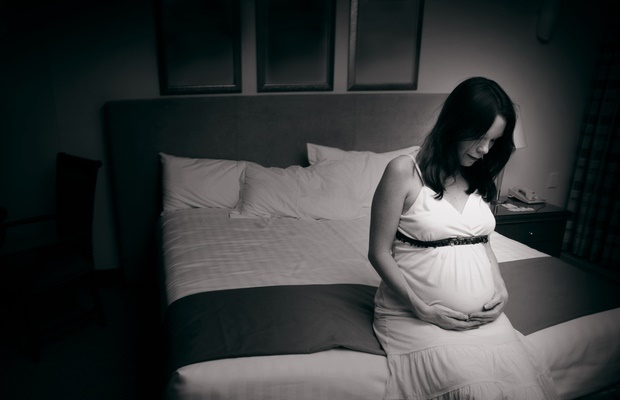
Pregnant women in South Africa who live in poor communities are more likely to consider or attempt suicide than the general population. That’s a key finding from a recent study we undertook at Hanover Park.
The research found 12% of pregnant women living in low-resource communities had thought of killing themselves during the previous month. In the same period, an additional 6% of pregnant women reported they had started to enact a suicide plan or attempted to end their lives. Rates of depression and anxiety were also found to be elevated among the pregnant women who took part in the study.
Read: South African Depression and Anxiety group (SADAG)
These findings mirror research about high rates of suicidal ideation and behaviour among pregnant women elsewhere in the world. A review of 17 studies in high- and low-income countries found the prevalence of suicidal ideation among pregnant and postpartum women ranged from 5% to 18%. Rates were higher among pregnant women living in low-income countries.
Our study’s most-significant finding was that more than half of the pregnant women who were at risk of suicide did not have a diagnosable depressive or anxiety disorder. Their suicide risk was also associated with lower socioeconomic status, food insecurity, intimate partner violence and a lack of social support.
Read: Pregnant and depressed?
This suggests suicidal ideation among pregnant women is about more than mental illness. Past studies suggest suicide and mental illness are strongly linked. Pregnant women who are depressed or have problems with anxiety are more likely to experience thoughts of death and engage in suicidal behaviour compared with other pregnant women.
But our research shows social and economic context may be a much more important contributor to suicide risk than previously thought.
Pernicious impact of adversity
The findings show the pernicious impact of socioeconomic adversity, interpersonal violence and lack of social support on pregnant women’s wellbeing.
We found pregnant women who are the victims of intimate partner violence are twice as likely to engage in suicidal behaviour compared to other pregnant women. Those who experience food insecurity – either they go hungry regularly or they have considerable trouble feeding themselves and their families – are almost four times more likely to report suicidal behaviour.
Read: “I want to kill myself”
Pregnant women who are not in a relationship are also more likely than other pregnant women to experience suicidal thoughts and attempt suicide. And we found suicide risk decreases as pregnant women experience more social support.
These findings add to the growing body of evidence showing that sociocultural and economic factors are important risk factors for suicide. Suicidal ideation and behaviour are not simply a symptom of mental illness. Suicide can be a reaction to living in a particular context or facing stressful circumstances.
So, our research supports the idea that suicide risk should be assessed independently of – and in addition to – depression and anxiety among pregnant women.
Broader focus needed
This is an important nuance. Suicide prevention initiatives have traditionally focused narrowly on identifying and treating psychiatric illness. Our findings suggest they should more broadly include interventions that tackle socioeconomic factors and adversity.
Interventions that focus exclusively on psychiatric determinants of suicidal behaviour are unlikely to be effective.
Read: Coping with post-natal depression
This is especially true in low-resource settings. Contributing factors include a scarcity of mental health resources and factors that adversely affect people’s lives.
More work still needs to be done to identify effective suicide prevention interventions for pregnant women living in adverse conditions. This requires more collaboration between different sectors. Policymakers also need to tackle social ills and find ways to increase the level of support for pregnant women and mothers of young babies.
Read more:
Psychiatric meds in pregnancy: yes or no?
When should you see a psychologist?
This article was originally published on The Conversation. Read the original article.Jason Bantjes, Senior Lecturer in the Psychology Department, Stellenbosch University; Nnachebe Michael Onah, Doctoral Candidate, University of Waterloo; Sally Field, Project co-ordinator: Perinatal Mental Health Project, researcher, University of Cape Town, and Simone Honikman, Director of the Perinatal Mental Health Project; Senior researcher, University of Cape Town




 Publications
Publications
 Partners
Partners














